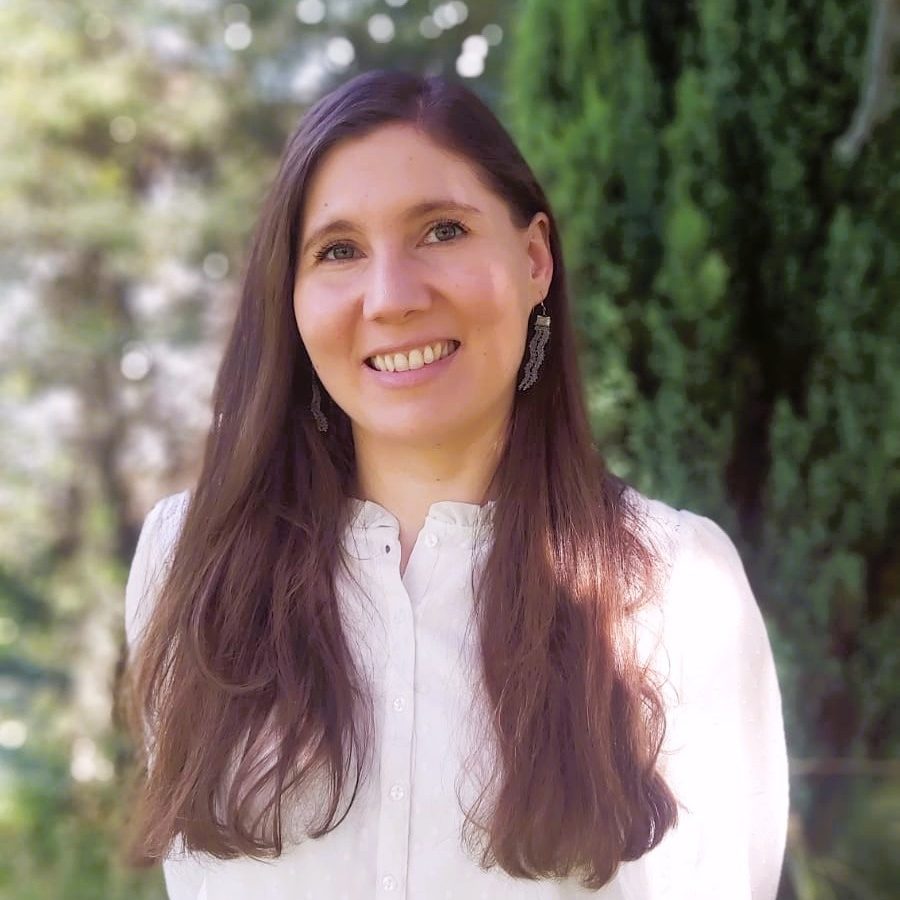About me
Fanny Martínez
I decided to study Psychology because I am passionate about knowing how the human mind works and I really like helping others. I have worked for years in the clinical field, helping people with psychological problems to improve their quality of life.
I have been extremely fortunate to live in several countries, which has helped me to adapt therapy to the life circumstances of each person and to understand the enormous importance of the cultural context in psychological phenomena.
As for my psychological orientation, I have training in cognitive-behavioral therapy, systemic family therapy, and attachment and trauma therapy. I usually say that I use an integrative approach, adapting the model and techniques to each particular case.
I like to continue with my specialization by taking various courses on psychological techniques and on how to approach therapy according to the group to which it is aimed (children, adolescents, adults).
Studies
2010: Bachelor”s degree in Psychology. University of Santiago de Compostela, Spain.
2012: Diploma in Psychology. Goethe University Frankfurt, Germany.
Since 2018: PhD student in Psychology at Goethe University Frankfurt am Main.
2023: Master”s Degree in General Health Psychology. University of Santiago de Compostela, Spain.
Work Experience
2008: Interdisciplinary Centre for Feminist Research and Gender Studies (CIFEX), Santiago de Compostela.
2010-2011: Area of General Psychology I at the Goethe University Frankfurt am Main.
2011-2012: German Institute for International Pedagogical Research (DIPF), Frankfurt am Main.
2012-2013: University Clinical Hospital, Frankfurt am Main.
2013-2017: MEDIAN Psychosomatic Rehabilitation Clinic, Bad Soden- Salmünster, Germany.
2017-2018: BTZ Job Training Center, Frankfurt am Main.
Since 2023: Freelance psychologist in Santiago de Compostela.
Courses
Training Sessions on Education, Gender and Equality.
Psychology in Film Productions.
Critical Subjectivities/ Identity Narratives. Feminisms and Contemporary Creation in the Spanish State.
Psychology and Sport.
Psychology and Advertising.
Ethical-deontological aspects in working with minors and their families.
Attachment A with Arwen Caban.
Comprehensive care for victims of torture and other human rights violations.
Child evaluation with projective techniques.
Initiation in attachment and trauma.
Immediate psychological intervention with women victims of gender violence.
Coping with death and grief in childhood.
Mentalization-based treatment for personality disorders.
Emotional regulation applied to the clinical field.
Systemic applications of polyvagal theory.
XIV Edition of the online course on systemic family therapy.
Psychotherapy in relational trauma.
Education in neuroscience and psychological approach to chronic pain.
Anxiety in the educational field.
Intervention with play in child and adolescent psychotherapy.
Publications
Rieger, M., Martinez, F., Wenke, D. (2011). Imagery of errors in typing. Cognition, 121(2), 163-175. https://www.sciencedirect.com/science/article/abs/pii/S0010027711001818?via%3Dihub
Martinez-Radl, F.B., Hinton, D.E., Stangier, U. (2023). Susto as a cultural conceptualization of distress: Existing research and aspects to consider for future investigations. Transcultural Psychiatry, 60(4):690-702. doi:10.1177/13634615231163986. https://journals.sagepub.com/doi/10.1177/13634615231163986
Frequently asked questions
What does psychological therapy consist of?
Psychological therapy is an intervention process in which a mental health professional works with a person to address and resolve emotional, psychological, or behavioral problems. The main goal is to improve mental health, promote emotional well-being, and help people develop strategies to cope with life”s challenges.
How often should I attend psychological therapy sessions?
The frequency of therapeutic sessions may vary depending on individual needs and the therapeutic guidance used. In general, at first, sessions are usually scheduled more frequently, such as once a week. As the patient progresses and improves, the frequency can be reduced to biweekly or monthly sessions. However, this can change depending on each person”s situation and their therapeutic goals.
In what aspects can psychological therapy help me?
- Symptom relief: Therapy can help reduce or eliminate problematic symptoms, such as anxiety, depression, stress, or addictive behaviors.
- Skill development: Therapists can teach coping skills, problem-solving techniques, and strategies for dealing with stress and emotions.
- Self-awareness: Therapy can help you better understand your thoughts, emotions, and behaviors, allowing you to make more informed and healthier choices.
- Improved well-being: Therapy seeks to promote emotional well-being and overall quality of life.
How long does psychological therapy last?
The length of psychological therapy varies depending on the person and the nature of their problems. Some people may benefit from brief therapies that last a few sessions, while others may require long-term therapy that can extend over several months or years. The decision on duration is made in collaboration with the therapist and depends on the therapeutic goals and the patient”s evolution.
What aspects should I take into account when starting psychological therapy?
- Look for a qualified therapist: Make sure you choose a professional with the right training and a valid license.
- Personal compatibility: The relationship between the patient and the therapist is crucial, so it is important to feel comfortable and trust the therapist.
- Therapeutic Goals: Define your therapeutic goals and expectations so that the therapist can adapt their approach.
- Costs and availability: Consider the cost of sessions and therapist availability in terms of schedules.

